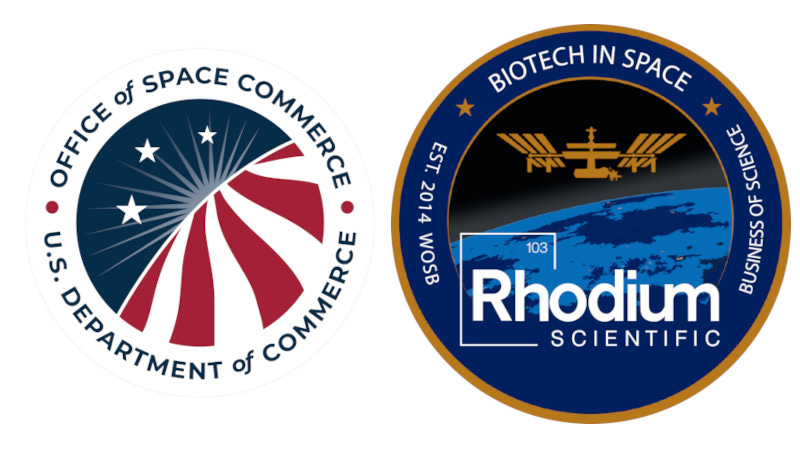Public-Private Collaboration will Study Space-Flown Reference Materials
Office of Space Commerce and NIST Partner with Rhodium Scientific
When the NASA Commercial Resupply Services-33 flight lifted off on August 25, it carried a wide array of reference materials – things like samples of cholesterol, uric acid, creatinine, tripalmitin, and organic contaminants in house dust – which were developed by the Department of Commerce’s National Institute of Standards and Technology (NIST) and transferred to Rhodium Scientific for integration into their specialized hardware.
After months of exposure to the space environment within the ISS, these materials will return to Earth. Researchers will then study their characteristics and compare them to unflown ground control samples to better understand how the space environment affects their chemical and physical properties. Theses studies are critical to advancing American space technology – allowing scientists to address space-based testing challenges; providing actionable insights into the use of materials exposed to the space environment; and facilitating use of these materials in other applications, from pharmaceuticals, medicine, and agriculture, to semiconductors, crystallography, and more.
This novel effort has been made possible by a first-of-its-kind public-private research collaboration: a long-term Cooperative Research and Development Agreement (CRADA) signed between the U.S. Department of Commerce’s Office of Space Commerce (OSC), NIST, and Rhodium Scientific.
This partnership combines NIST’s authoritative technical and scientific expertise with OSC’s close engagement with the U.S. commercial space sector and Rhodium Scientific’s capabilities in commercial spaceflight access and proprietary hardware. This innovative collaboration is a major step forward in advancing the President’s Executive Order enabling competition in the commercial space industry.
Findings from the analysis and study of these materials will be published and made available to the scientific community. A portion of the space-flown NIST material and their ground control specimens will be stowed in a sample repository, the Rhodium Space BioBank™, to support future analysis and research. OSC will continue to share non-proprietary information about these materials through seminars, conferences, publications, and other activities.
The materials were successfully delivered to the ISS on Monday, August 25. They will be hosted there for approximately four months, slated to return in December 2025 upon conclusion of the CRS-33 mission.



